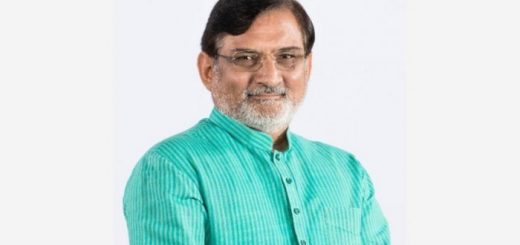MASLOW’S HIERARCHY OF NEEDS

Khevna.P.Shah, INN/Bangalore
@Shahkhevna1, @Infodeaofficial
“What is necessary to change a person is to change his awareness of himself.”
Born in the year 1908, to a Jewish family, Abraham Harold Maslow, known for Maslow’s Hierarchy of Needs, was an American psychologist. Raised and educated in Brooklyn, New York, Maslow attended the City College of New York and Cornell University before graduating from the City College. He attained his graduate-level psychology at the University of Wisconsin. He was a psychology professor at Brooklyn College, New School for Social Research, Brandeis University, and Columbia University. He became a resident fellow at the Laughlin Institute in California, where he stayed until his death in the year 1987.

In the year 1944, Maslow put forth the theory of motivation for Psychological Review. “A theory for Human Motivation”, which later came to be known as Maslow’s Hierarchy of Needs. According to Woodworth, “Motivation is the state of the individual which disposes him to certain behavior for seeking a goal”. As the title suggests, Maslow’s theory emphasizes his observation and ideas on human needs and motivation. He believed that there are different needs that motivate people to achieve goals and satisfaction. Maslow’s hierarchy of needs is a pyramid classifying the hierarchy of human needs, at the primal level being psychological needs such as food and water and at the abstract level being Self-actualization and fulfillment. Maslow believed that when a lower need is met, the next need on the hierarchy becomes one’s focus of attention.
Physiological need
According to Malow, the physiological need is a primary need that includes food, water, sleep, and shelter. He believes that these needs involve our effort to meet the body’s need for homeostasis, meaning maintaining consistent levels in different bodily systems. They are considered to be the most essential of our needs and if someone is lacking in more than one need, they’re most likely to fulfill the physiological need first. For example, if someone is extremely hungry, he/she will be unable to focus on their activity unless the hunger is satisfied. Similarly, if one keeps delaying the acquisition of the physiological need, the desire for it keeps increasing, i.e., if one doesn’t quench their thirst, the desire to drink water keeps increasing. Meeting basic needs is more of a priority now than before, given the current situation.
Safety
Once the physiological needs are fulfilled, the desire to acquire a safe environment arises. This need is something that develops from childhood. As a child, one looks for a safe and comfortable environment and as pointed out by Maslow, the adults living in developed nations, safety needs are more apparent in an emergency situation such as war or disasters. People sought to look for control, order, and predictability in their life and that is why safety needs such as financial security, property, emotional security, health, and well-being are to be fulfilled. It is necessary to educate oneself about the safety procedures in terms of COVID.
Love and belonging
This need is the beginning of an interpersonal relationship and the need to be accepted by society. Maslow argued that it is crucial for humans to love others and be loved by others and the absence of this love results in things like loneliness, anxiety, and depression. The specifics of these relationships vary from individual to individual- while some may seek larger social groups, meanwhile, some may be content with the smaller group. It is very crucial to connect with the family member, especially in the light of the pandemic, to avoid the sense of loneliness, depression, and struggle of survival.
Esteem-needs
According to Maslow, esteem needs include two components. The first involves self-confidence and feeling good about oneself. The second component involves feeling values by others. When the esteem needs are met, the person feels confident and when they are failed to achieve one may experience the ‘feeling of inferiority’ the term introduced by the psychologist Alfred Adler. In the current situation of the pandemic, esteem-needs means encouraging family members and loved one’s to survive the pandemic.
Self-actualization
It is termed as B-needs (being needs) by Maslow as it includes the desire to gain something intangible for the self. According to him, achieving self-actualization is relatively rare, and in his given examples Abraham Lincoln, Albert Einstein, and Mother Teresa are the few of the personalities who have attained it. Given the current situation, most people are failing to focus on high-order needs.
Despite the fact, Maslow’s Hierarchy of Needs being relevant even after 70 years faced few critics from various psychologists. But in the year 2006, author and former philosophy professor Christina Hoff Sommers and practicing psychiatrist Salley Satel asserted that, due to lack of empirical support, Maslow’s ideas have fallen out of fashion and are “no longer taken seriously in the academic world” Maslow developed this theory solely based on observation, and few scientists believe the result lacks scientific rigor. Furthermore, his theory is said to be culturally biased since different cultures view different needs as a priority.




